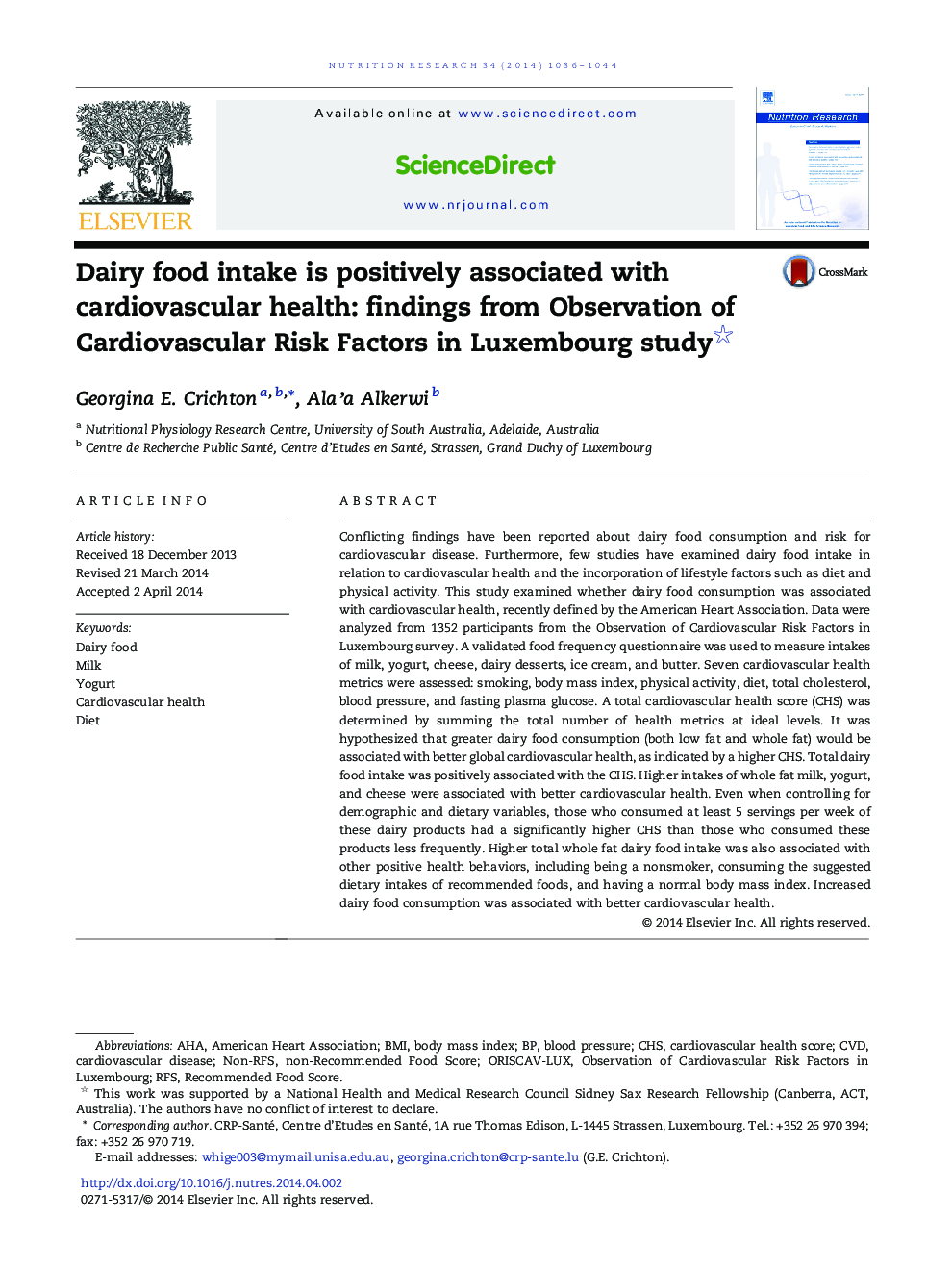| Article ID | Journal | Published Year | Pages | File Type |
|---|---|---|---|---|
| 2808989 | Nutrition Research | 2014 | 9 Pages |
Conflicting findings have been reported about dairy food consumption and risk for cardiovascular disease. Furthermore, few studies have examined dairy food intake in relation to cardiovascular health and the incorporation of lifestyle factors such as diet and physical activity. This study examined whether dairy food consumption was associated with cardiovascular health, recently defined by the American Heart Association. Data were analyzed from 1352 participants from the Observation of Cardiovascular Risk Factors in Luxembourg survey. A validated food frequency questionnaire was used to measure intakes of milk, yogurt, cheese, dairy desserts, ice cream, and butter. Seven cardiovascular health metrics were assessed: smoking, body mass index, physical activity, diet, total cholesterol, blood pressure, and fasting plasma glucose. A total cardiovascular health score (CHS) was determined by summing the total number of health metrics at ideal levels. It was hypothesized that greater dairy food consumption (both low fat and whole fat) would be associated with better global cardiovascular health, as indicated by a higher CHS. Total dairy food intake was positively associated with the CHS. Higher intakes of whole fat milk, yogurt, and cheese were associated with better cardiovascular health. Even when controlling for demographic and dietary variables, those who consumed at least 5 servings per week of these dairy products had a significantly higher CHS than those who consumed these products less frequently. Higher total whole fat dairy food intake was also associated with other positive health behaviors, including being a nonsmoker, consuming the suggested dietary intakes of recommended foods, and having a normal body mass index. Increased dairy food consumption was associated with better cardiovascular health.
